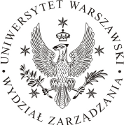Ethical standards
Editors of “Studia i Materiały” ensure that ethical standards of scientific publications are maintained and take all possible steps against non-compliance with the standards for publications in the Journal. Papers submitted for publication in “Studia i Materiały” are evaluated for accuracy, compliance with ethical standards and usefulness for science.
The following guidelines are based on COPE’s Best Practice Guidelines for Journal Editors.
Responsibilities of Authors
Authorship of work
Authorship should be limited to those who have contributed significantly to the idea, design or preparation of the paper, or to the analysis of research. All persons who participated in the paper preparation should be listed as its co-authors. Other persons who influenced some important aspects of a scholarly paper should be listed or shown as collaborators. The author should ensure that all co-authors are listed in the paper, have seen and approved the final version of the paper and agreed to its submission for publication.
Disclosure and conflict of interest
The author should disclose all project funding sources in his/her paper, the contribution of research institutions, associations and other entities and any major conflicts of interest that may affect the results or analysis of research.
Standards for presenting research reports
The author of a text based on his/her own research should provide a detailed list of the tasks performed and objectively discuss their significance. The data used for the preparation of the paper should be carefully presented. A paper should include enough details and sources to allow for the research to be replicated. False or knowingly inaccurate statements are regarded as unethical behavior and are prohibited.
Access to data and data maintenance
The author should provide raw data on the paper submitted for review or be ready to allow access to such data upon request. He/she should also keep the data for five years following the date of publication.
Multiple, redundant or competitive publications
As a rule, the author should not publish materials describing the same research in more than one journal or original publication. Submitting the same paper to more than one journal at the same time is an unethical behaviour and is prohibited.
Confirmation of sources
The author should cite publications that have had an impact on the paper submitted and has to confirm each use of other authors’ works.
Fundamental errors in published works
If the author discovers a fundamental error or inaccuracy in his/her paper, he/she is required to notify the editorial secretary as soon as possible.
Originality and plagiarism
The author submits only the original work to the Editors. He/she should make sure that the names of the authors cited in his/her paper and/or parts of papers and/or cited works have been cited or mentioned correctly therein.
Ghostwriting
Ghostwriting/guest authorship are manifestations of scientific misconduct and any detected cases will be revealed, including notification of the entities concerned. Manifestations of scientific misconduct, especially violations and breaches of ethical guidelines applicable in science, will be documented by the Editors.
Responsibilities of the Editor-in-Chief and the Editorial Board
Publication decisions
Editor-in-Chief must comply with the existing law on defamation, infringement of copyright and plagiarism and is responsible for the decisions on which submitted articles should be published. He/she may consult thematic editors and/or reviewers.
Confidentiality
No information about a paper submitted may be disclosed to any member of the editorial team other than – in accordance with the publishing procedure – its author, reviewers, potential reviewers, other editorial advisers or the publisher.
Discrimination
Insofar as anti-discrimination is concerned, the Editors respect the Constitution and the laws applicable in the Republic of Poland.
Disclosure and conflict of interest
Unpublished papers or their parts may not be used in research conducted by the editorial team or reviewers without the express written consent of the author.
Reviewers’ responsibilities
Editorial decisions
The reviewers supports the Editor-in-Chief in taking editorial decisions and may also assist the author in improving his/her work.
Feedback
Each selected reviewer who cannot review the paper or knows that rapid preparation of a review will not be possible should inform the editorial secretary.
Objectivity standards
Reviews should be objective. Personal criticism of the author is deemed inappropriate. Reviewers should clearly express their views, supporting them with appropriate arguments.
Confidentiality
All reviewed papers must be treated as confidential documents. They may not be showed to or discussed with persons other than the authorized editorial secretary.
Anonymity
All reviews are anonymous and the Editorial Board does not make authors’ personal data available to reviewers.
Disclosure and conflict of interest
Confidential information or ideas that emerge as a result of the review must be kept confidential and may not be used for personal benefit. Reviewers should not review works involving a conflict of interest due to the relationship with the author, company or institution connected with the work.
Confirmation of sources
Reviewers should identify publications not referred to by the author of the paper. Any claim that an observation, source or argument has been previously discussed should be supported by an appropriate quotation. The reviewer should also inform the editorial secretary of any significant similarity, partial overlapping of the content of the reviewed paper with any other published work that is known to the reviewer or of suspected plagiarism.
Security Procedures
Crossref Similarity Check
Manuscript checking is done using iThenticate which provides plagiarism prevention services to publishers around the world.
